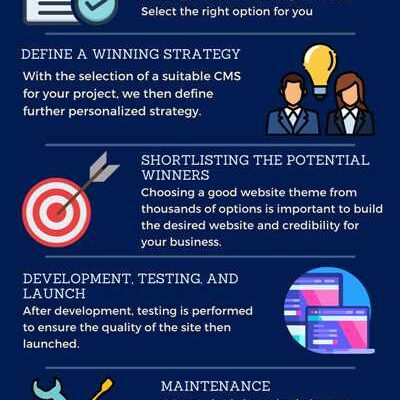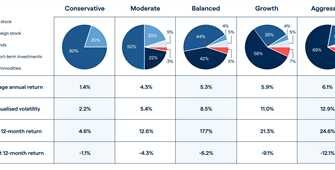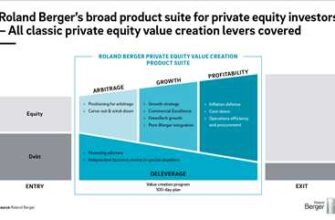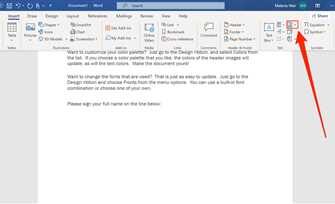
If you’re a business owner or someone who wants to establish an online presence, it is essential to know what CMS (Content Management System) is and how it can work for you. In today’s internet-driven world, websites are more than just pages with text and images. They are a representation of your business or personal brand, and you need a system that allows you to manage and customize your content without any technical background. This is where a CMS comes into play.
CMS systems provide website owners with options to create, manage, and publish their content with ease. Even if you’re not a web developer, CMS systems make it possible for you to have a website that looks professional and functions well. With a CMS, you don’t need to know how to code or have extensive technical knowledge to manage your online business.
One of the key advantages of using a CMS is the ability to customize your website to fit your specific business needs. Whether you have a small blog or a large e-commerce site, CMS systems offer a range of tools and features that allow you to tailor your website to your exact specifications. You can choose from a variety of themes, templates, and plugins to enhance your website’s functionality and design.
In conclusion, if you’re looking to create a CMS website, it is important to understand the benefits and possibilities it offers. With a CMS, you can manage your online business without the need for technical knowledge and background. You have the freedom to customize your website, publish your content, and have control over its management. So, don’t hesitate to explore the various CMS systems available and find the one that best suits your needs!
What Is a Content Management System CMS
Content Management System (CMS) is a software that allows you to create, manage, and publish content on a website without the need for technical knowledge or coding skills. With a CMS, you are able to customize the look and feel of your website, add or remove pages, and update your content with ease.
Before CMS systems were introduced, websites were created and managed manually. Developers had to write code for every page and make changes directly on the website’s files. This process was time-consuming and required technical expertise. It was also difficult for businesses to make changes quickly and efficiently.
With the advent of CMS systems, creating and managing websites became much simpler. CMS systems provide a user-friendly interface that allows you to easily add, edit, and manipulate content. You can organize your content into different categories, create pages and posts, and publish them online without any knowledge of coding or web development.
CMS systems come with a wide range of options and features that make it possible to manage websites of any size or complexity. From small personal blogs to large corporate websites, CMS systems can handle it all. With a CMS, you have the flexibility to add new functionalities or customize your website to meet your specific needs.
One of the main advantages of using a CMS is that it allows multiple users to collaborate on a website. Different users can have different levels of access and permissions, allowing them to contribute to the website without interfering with each other’s work. This is especially useful for businesses that have multiple departments or teams working on different aspects of their website.
In conclusion, a CMS is an essential tool for managing your website’s content. Whether you’re a small business owner, a blogger, or an online entrepreneur, using a CMS can make your life easier and your website more efficient. By using a CMS, you can focus on creating great content and growing your business, without worrying about the technical aspects of web development.
Background

In today’s digital age, the work of managing websites and pages has become an essential part of running a successful online business. CMS, or Content Management System, is a powerful tool that allows businesses to easily create, customize, and manage their online presence without the need for technical knowledge or hiring developers.
Before CMS systems were available, businesses would need to have a strong technical background to be able to publish and manage their websites. Even if they were able to do it, the options for customization and managing larger websites were limited. With CMS, it is now possible for businesses of any size to create and manage their own website without having to know how to code.
CMS systems offer a wide array of features, allowing users to add and edit content, manage user roles and permissions, and customize the design of their website. This makes it easy for businesses to keep their website up-to-date and relevant to their target audience.
One of the key advantages of using a CMS is the ability to publish content quickly and efficiently. With a few clicks, users can create new pages, upload images, and add text to their website. This allows businesses to stay relevant and provide their audience with fresh content on a regular basis.
Another advantage of CMS systems is the ability to easily manage and organize content. Users can categorize their content, create tags, and even schedule posts to be published at a later date. This makes it easy to keep track of and manage large amounts of content.
In conclusion, CMS systems have revolutionized the way businesses manage their online presence. They provide businesses with the tools they need to create, customize, and manage their websites without the need for technical knowledge or hiring developers. Whether you’re a small business owner or a large corporation, CMS systems offer options that were once only possible for those with a strong technical background. With CMS, managing your online business and delivering content to your audience has never been easier.
Conclusion
In conclusion, creating a CMS website is now more than possible without any technical knowledge. With the wide range of CMS options available, businesses of all sizes can easily manage their online presence and publish their content on the internet. CMS systems provide a user-friendly interface that allows even those with little background in web development to create and manage their own website.
CMS websites offer numerous advantages over traditional static websites. They provide a centralized content management system, allowing you to easily update and maintain your website without the need for technical expertise. CMS systems also offer a wide range of features and options that can be customized to meet your specific needs.
If you’re considering creating a website for your business, a CMS is definitely worth considering. With a CMS, you can save time and effort by utilizing pre-built templates and modules. You can also easily add new pages and content to your website, ensuring that it stays fresh and up to date.
In conclusion, a CMS website is the ideal choice for businesses wanting to establish an online presence without the need for technical skills. With the ease of use and flexibility that CMS systems provide, you can create a professional-looking website that meets your specific needs. So, if you’re ready to take your business online or update your existing website, consider using a CMS to make the process even easier.
Sources

If you’re a business owner or a developer looking to create a CMS website, there are several sources you can rely on for information. These sources will help you understand how CMSs work, what their advantages and disadvantages are, and how to choose the right one for your business.
- Online articles and tutorials: The internet is a treasure trove of resources when it comes to CMSs. There are countless articles and tutorials that explain how to create a CMS website, how to customize it to your needs, and how to manage and publish content. You can even find step-by-step guides that walk you through the entire process.
- Books and eBooks: If you prefer a more structured approach, there are several books and eBooks available that cover CMS website development. These resources often provide in-depth information on CMSs, their technical aspects, and best practices for creating and managing websites.
- CMS documentation: Many CMSs have extensive documentation that can guide you through the process of building a website. These documents often contain detailed information on how to install, configure, and customize the CMS, as well as how to manage and publish content. They are a valuable resource for developers and business owners alike.
- Online forums and communities: If you have specific questions or need help with a particular aspect of CMS website development, online forums and communities can be a great resource. Here, you can connect with other developers and business owners who have experience with CMSs and get answers to your questions.
- Webinars and workshops: Some CMS companies offer webinars and workshops that cover various aspects of CMS website development. These events are a great way to learn from industry experts and get hands-on experience with different CMSs. They can also provide insights into the latest trends and best practices in CMS website development.
In conclusion, creating a CMS website is not just for developers with a technical background. With the multitude of options available and the wealth of resources online, businesses of any size can create and manage their own websites without prior knowledge or background in CMSs. By leveraging the sources mentioned above, you can learn more about CMSs, their features, and their benefits, and choose the right CMS for your business.
Read more about CMS website development and explore the possibilities they offer for businesses of all sizes.










